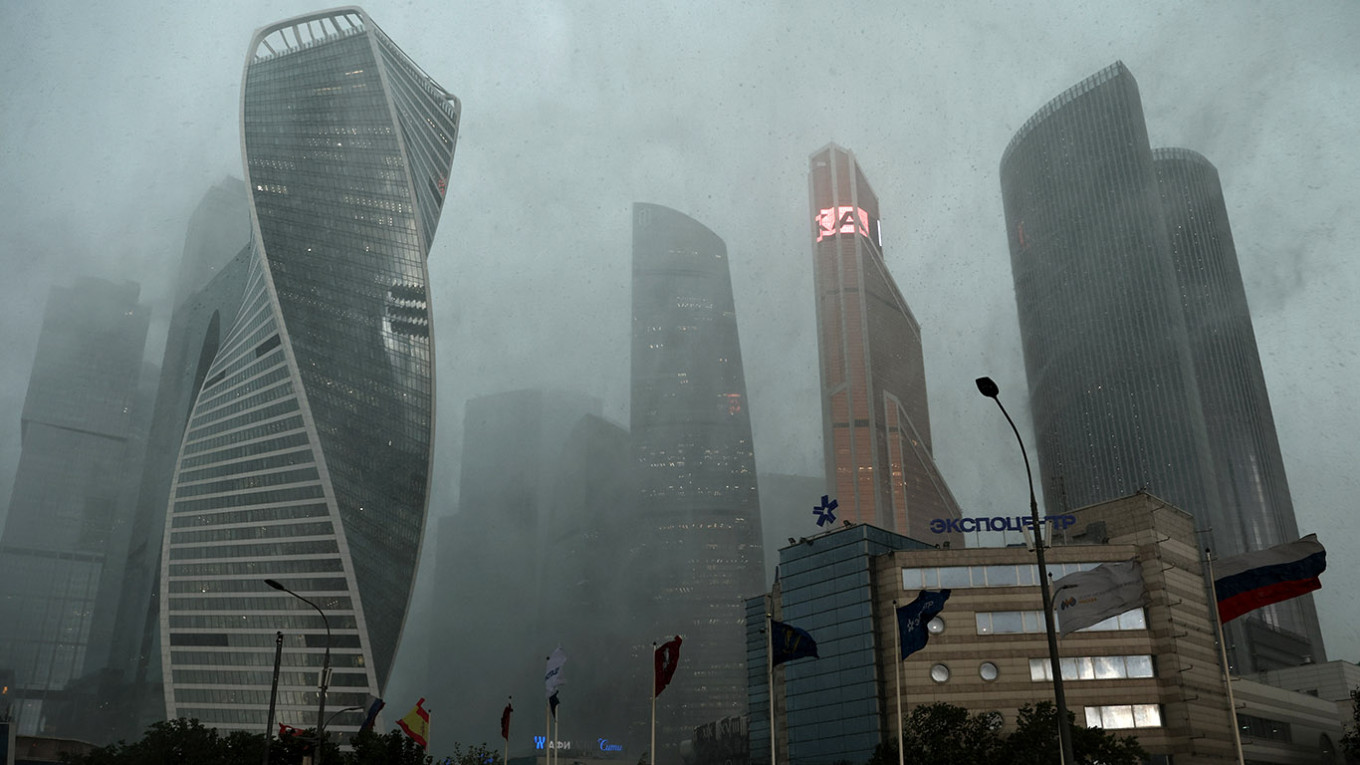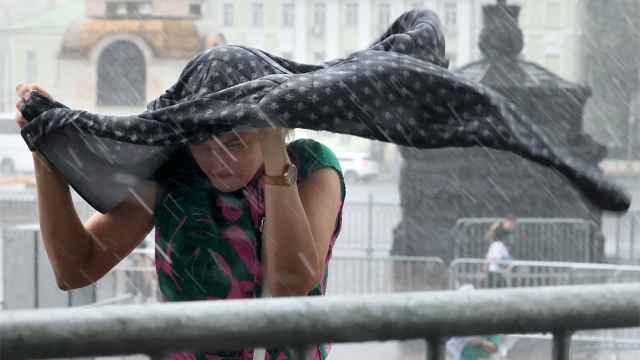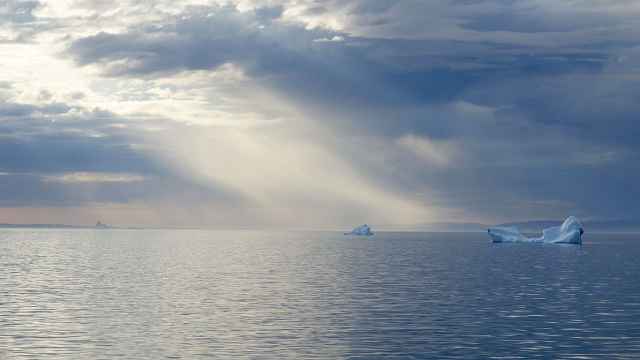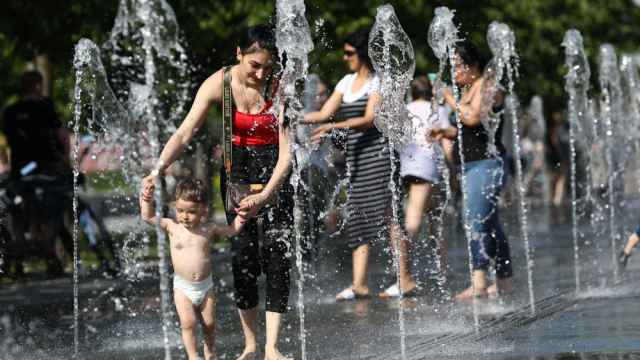Moscow Mayor Sergei Sobyanin, assuming his usual role of the guardian of Muscovites' safety, recently issued an unprecedented warning: a tornado was coming to the capital.
“Tomorrow, we will face another challenge with extreme weather conditions,” Sobyanin said on Telegram on June 19. “There is a chance of tornado formation, which is particularly dangerous. Please be careful and avoid being outside.”
The next day, the powerful storm Edgar struck the capital, with a tornado spotted in the Moscow region.
The storm wreaked havoc, uprooting trees and knocking down pedestrians. Two people were killed and 35 people injured, some by fallen trees. One person was reportedly trapped in a portable toilet that fell with its door facing the ground.
Just one week before storm Edgar, parts of Moscow were flooded as the city was hit by several consecutive days of unusually heavy rain.
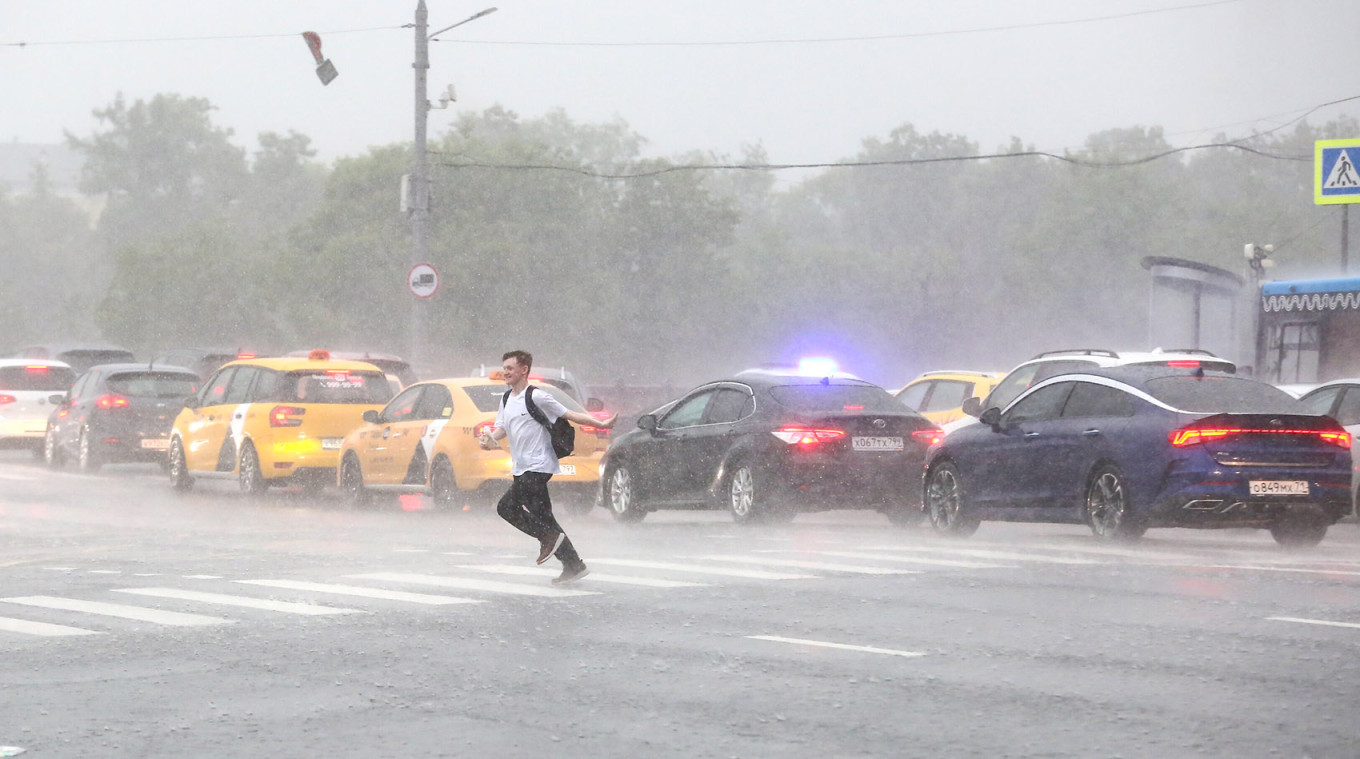
As human activities continue to heat the planet, fears grow over the increasing frequency and severity of extreme weather events — and their impact on densely populated cities like Moscow.
Here’s what Russian scientists have said about tornadoes and climate change in Moscow:
How is climate change unfolding in Moscow?
Last year was the warmest year on record for European Russia, which encompasses regions west of the Ural Mountains, including Moscow.
Scientists say the capital has warmed by about 2.4 degrees Celsius from 1780 to 2020 — a greater increase than the planet overall, which reached 1.4 C of heating above the early industrial level in 2023, the world’s hottest year on record.
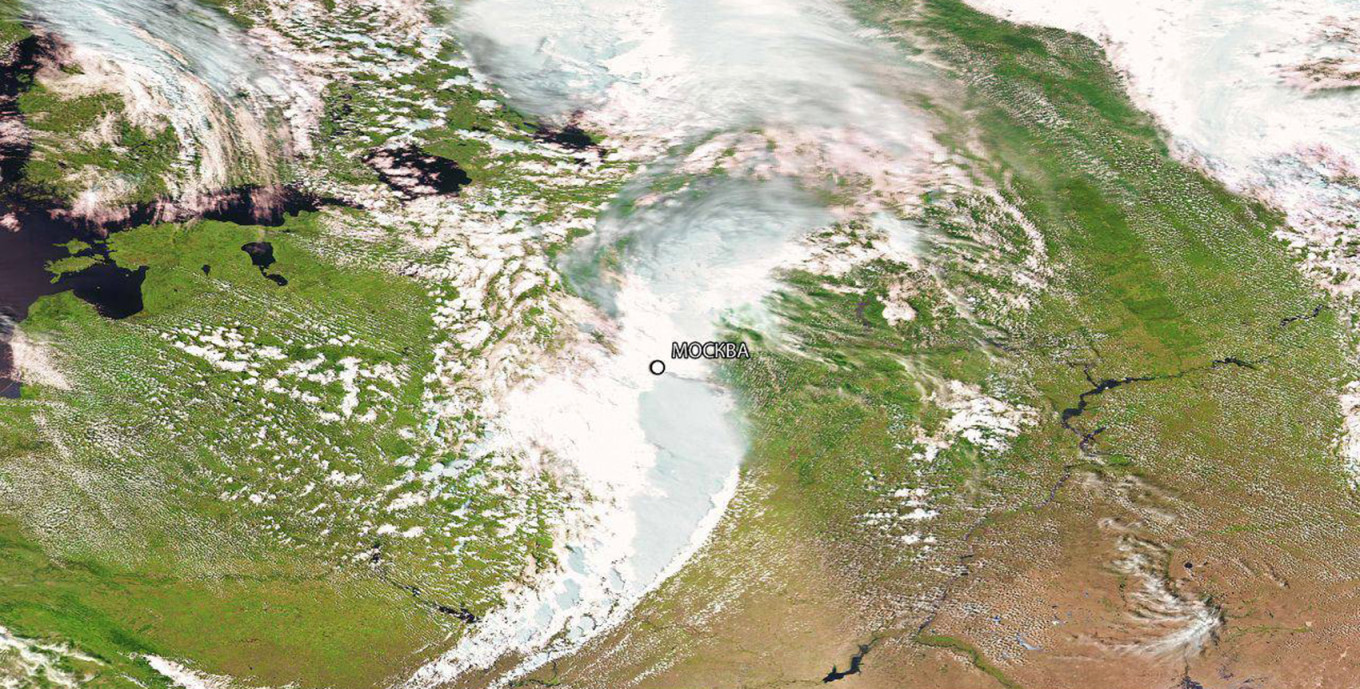
Temperature and precipitation records are regularly shattered in the Moscow region, with one-third of the monthly precipitation norm sometimes witnessed in a single day.
Some scientists have suggested that Moscow’s temperate continental climate could become a wet subtropical climate this century. Others predict that it will more closely resemble a maritime climate, with mild winters and more destructive showers.
What fueled the tornado?
Tornadoes generally require a warm climate, moderate latitudes and a large continental expanse.
They form when certain meteorological conditions combine: cold fronts from colliding air masses with different temperatures, high humidity and atmospheric “instability.”
According to Vladimir Semyonov, deputy director at the Obukhov Institute of Atmospheric Physics, tornadoes and squalls most often occur when warm, humid air — which is becoming more common in Moscow in the summer as temperatures rise — cools down due to the arrival of cold air, which arrives in Moscow from the Arctic.
How common are tornadoes in Russia?
While tornadoes do occur in Russia, most are weak and short-lived.
The country experiences between 100 and 300 tornadoes annually, 10 to 50 of which are severe, according to Moscow-based climatologist Alexander Chernokulsky. These events injure 50 to 100 people and kill five to 10 individuals on average each year.
A powerful tornado passed through the city of Ivanovo in 1984, and another hit the Moscow region in 2016, with casualties in both cases, Chernokulsky said.
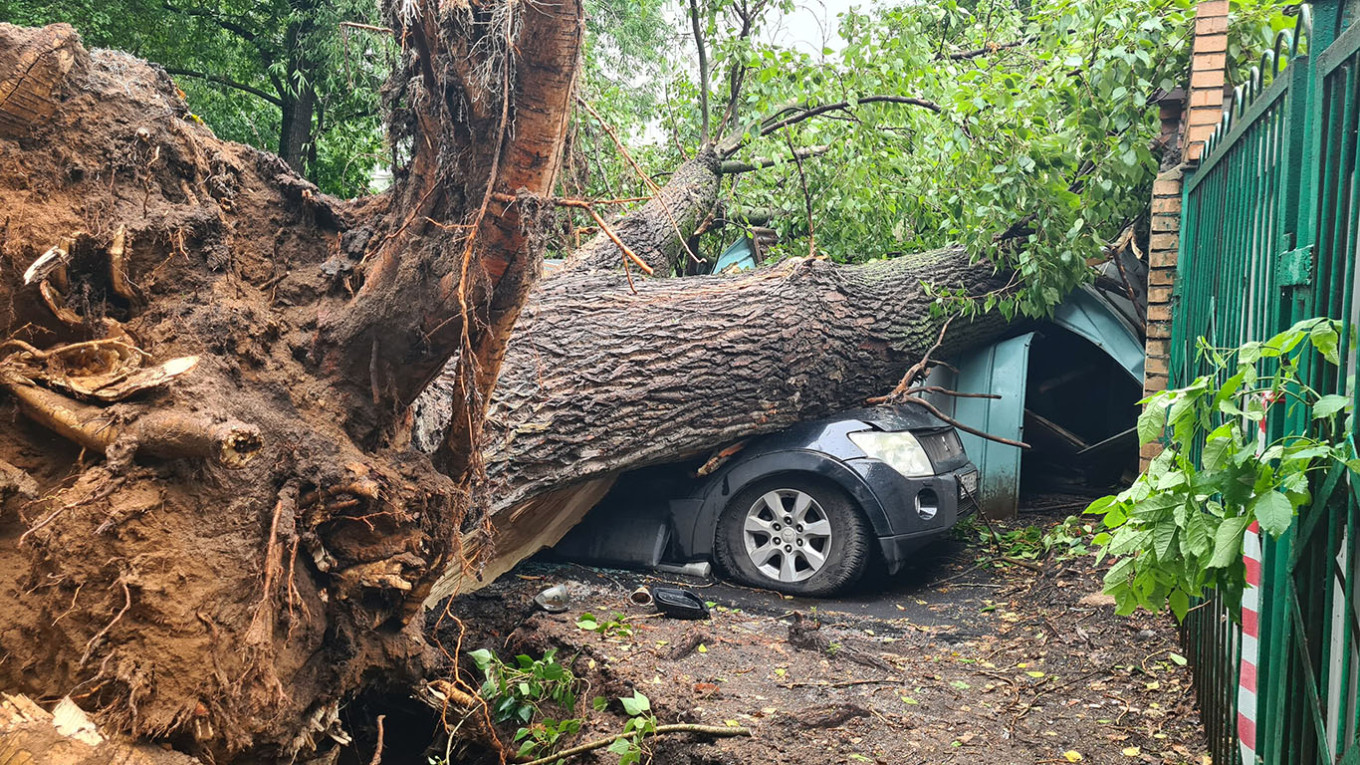
Because tornadoes are simply easier to film today than they were in the past, they can fuel public concerns. Still, studies suggest that their threat and frequency could be underestimated.
“We are simply lucky that they often miss cities,” Chernokulsky told the Expert business magazine.
Is climate change making tornadoes more frequent in central Russia?
Scientists are observing a rise in tornadoes and severe squalls in central Russia, as well as along the Black Sea coast and southern Western Siberia, Chernokulsky said.
Human-caused climate change creates atmospheric conditions that make tornado formation more likely.
While basic physics suggests that a warmer atmosphere holds more moisture — in turn fueling intense precipitation and tornadoes — scientists are hesitant to blame climate change for the rise in tornadoes, according to Chernokulsky, and are currently researching the potential link.
What is happening with precipitation in Moscow?
Moscow, like other major Russian cities, has seen higher annual precipitation on average from 2014 to 2023 compared to the period from 1950 to 1979, an analysis of weather data by tech giant Yandex showed.
Precipitation has become more intense in central Russia, with heavier daily amounts becoming increasingly common.
According to Chernokulsky, the continuous precipitation typical of the 1970s have now been replaced by showers, with heavy rainfall in particular becoming more common.
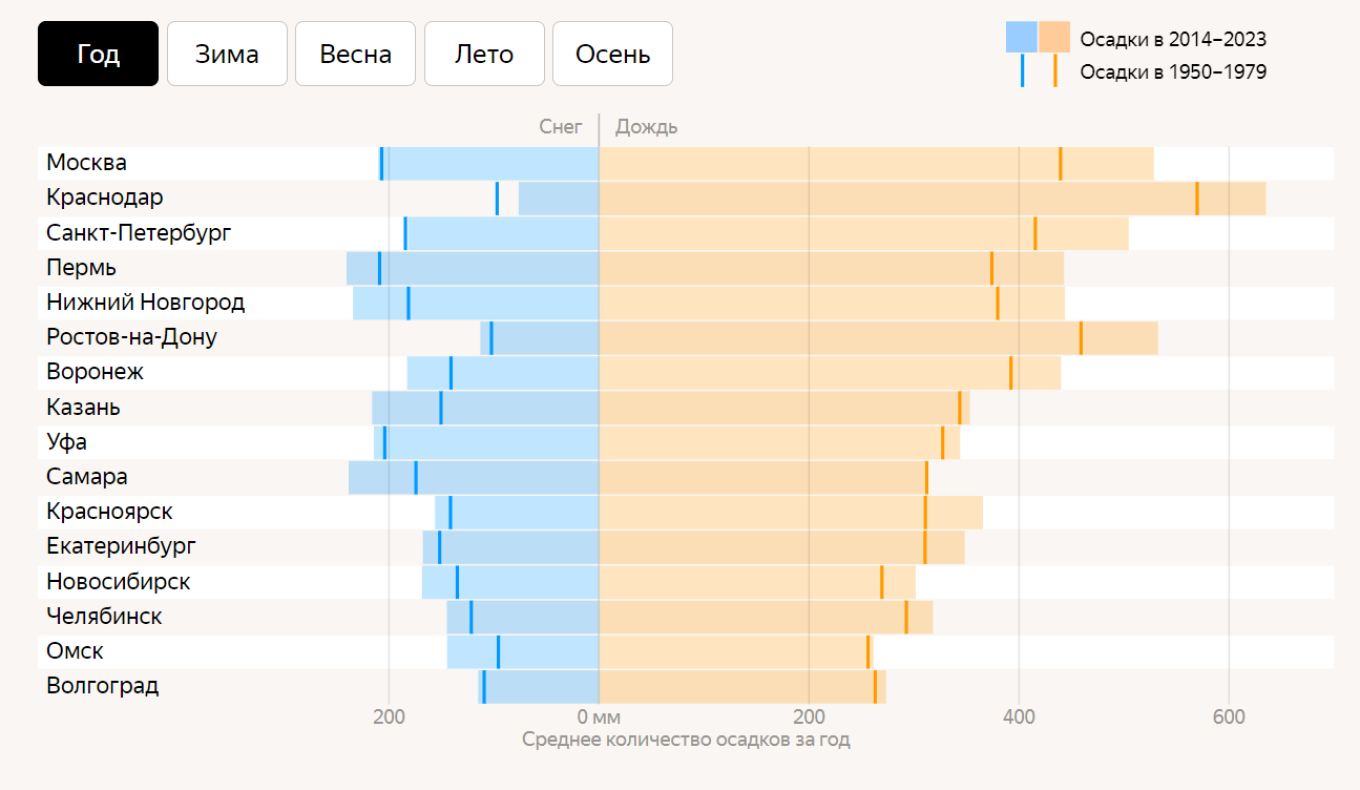
The graph shows precipitation change in Russian cities, with Moscow at the top.
The boxes represent the average annual precipitation each city received from 2014 to 2023. The vertical lines show the same parameter in the period from 1950 to 1979.
Blue boxes display snow precipitation, and orange boxes represent rain.
Should Moscow brace for more frequent tornadoes and heavy rainfall with climate change?
Tornadoes — a rare phenomenon for the Moscow region — are expected to become more frequent as global temperatures rise, Mikhail Leus from the Phobos weather center told the state-run TASS news agency.
This increase will be particularly noticeable in central Russia — including Moscow — and the south of Western Siberia, Chernokulsky told The Moscow Times.
Scientists also predict more frequent showers affecting economic activity in Moscow as the climate crisis intensifies.
Is Moscow ready to meet these challenges?
The negative impacts of increased tornadoes will largely depend on forecasting and warning efforts, Chernokulsky told The Moscow Times. Effective disaster management requires a developed network of specialized radars, satellite monitoring and computer modeling of upcoming tornadoes.
The tornado alert on June 19, issued a day in advance, was the first of its kind in Moscow and helped save lives, Chernokulsky believes, adding that inadequate warnings in 2017 resulted in higher casualties during a powerful squall.
While Moscow boasts the country’s most developed stormwater drainage system, flooding during recent storms has exposed its inability to manage intensive rainfalls.
Estimates suggest that the intensity of today's "near-tropical" showers in Moscow is at least twice the capacity of the city’s existing storm drainage infrastructure.
A Message from The Moscow Times:
Dear readers,
We are facing unprecedented challenges. Russia's Prosecutor General's Office has designated The Moscow Times as an "undesirable" organization, criminalizing our work and putting our staff at risk of prosecution. This follows our earlier unjust labeling as a "foreign agent."
These actions are direct attempts to silence independent journalism in Russia. The authorities claim our work "discredits the decisions of the Russian leadership." We see things differently: we strive to provide accurate, unbiased reporting on Russia.
We, the journalists of The Moscow Times, refuse to be silenced. But to continue our work, we need your help.
Your support, no matter how small, makes a world of difference. If you can, please support us monthly starting from just $2. It's quick to set up, and every contribution makes a significant impact.
By supporting The Moscow Times, you're defending open, independent journalism in the face of repression. Thank you for standing with us.
Remind me later.


